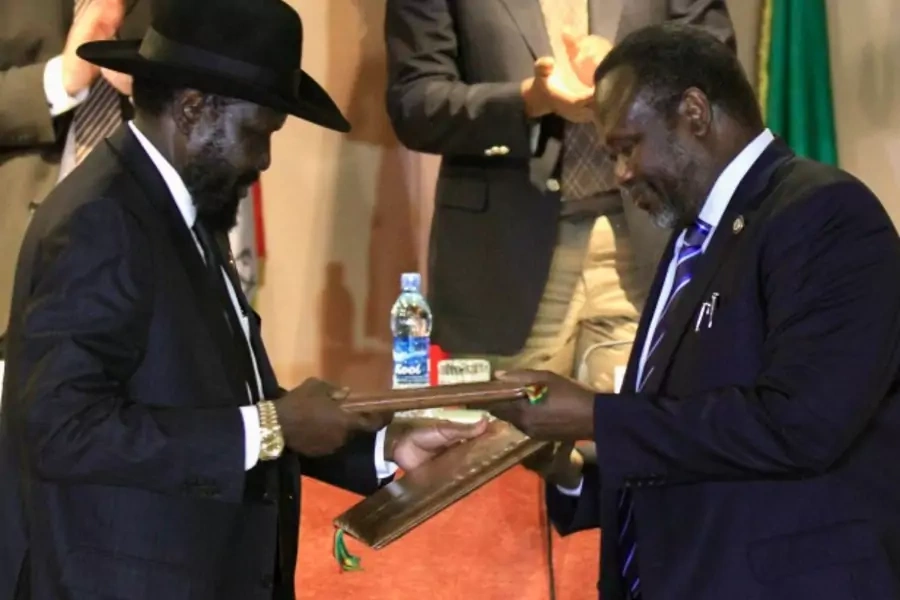Chasing an Elusive Peace in South Sudan

More on:
This is a guest post by Aala Abdelgadir, research associate for the Council on Foreign Relation’s Civil Society, Markets, and Democracy Initiative.
Earlier this week, after thirteen months of civil war, South Sudan’s warring factions signed an Agreement on the Establishment of a Transitional Government of National Unity. President Salva Kiir and his rival, former vice president Riek Machar, recommitted to a cease-fire. The two factions also agreed to a transitional power-sharing government that will rule for thirty months beginning in July 2015, and they approved the establishment of a truth and reconciliation commission and a judicial body to investigate and address human rights abuses.
The particulars of the transitional government, such as the identities of the executive leadership and the proportion of government positions each side will receive, will be negotiated throughout February, and a final peace deal is expected by March 5.
South Sudan descended into conflict in December 2013 when President Kiir accused Vice President Machar of plotting a coup and dismissed him and eleven other senior political figures. Machar interpreted Kiir’s actions as a bid to consolidate political power and created an opposition movement to counter him. This elite political division incited fighting among the security forces and escalated into an all-out armed conflict, which soon took on an ethnic tinge, pitting ethnic Dinkas who supported Kiir against ethnic Nuer who backed Machar. The war is estimated to have killed upward of 10,000 and displaced over one million people.
The United States, Norway, and the United Kingdom, as well as special envoys from the East African Intergovernmental Authority in Development (IGAD), played an instrumental role in facilitating the independence of South Sudan. Given their protracted involvement, some have placed the blame for South Sudan’s swift descent into chaos on their shoulders. While they bear some responsibility, U.S., European, and African partners have expended considerable time, effort, and resources on trying to repair the political rift between Machar and Kiir. They brokered a ceasefire agreement in January 2014 and hosted several rounds of peace talks, all of which failed to stop the fighting.
Peacemaking efforts have been continually impeded by Kiir and Machar. Ultimately, only South Sudanese leaders can put an end to the deadly conflict that has ravaged their country since late 2013.
This recent agreement is a step in the right direction. Given the history of failed negotiations between Machar and Kiir, skepticism abounds over whether it will lead to a sustained peace. It is not merely a question of Machar and Kiir’s political will, but also whether these two leaders can convince their armies, unaffiliated militias, staunch advocates, and political allies to honor a peace agreement.
Yet, IGAD and South Sudan’s other international partners are determined to help achieve a final resolution on March 5. To incentivize good behavior, the United Nations, African Union, and IGAD have threatened sanctions against anyone who undermines the peace process. Whether sanctions or a desire to alleviate civilians’ suffering will compel South Sudanese leaders to sign a final deal by March 5 will remain to be seen.
More on:
 Online Store
Online Store